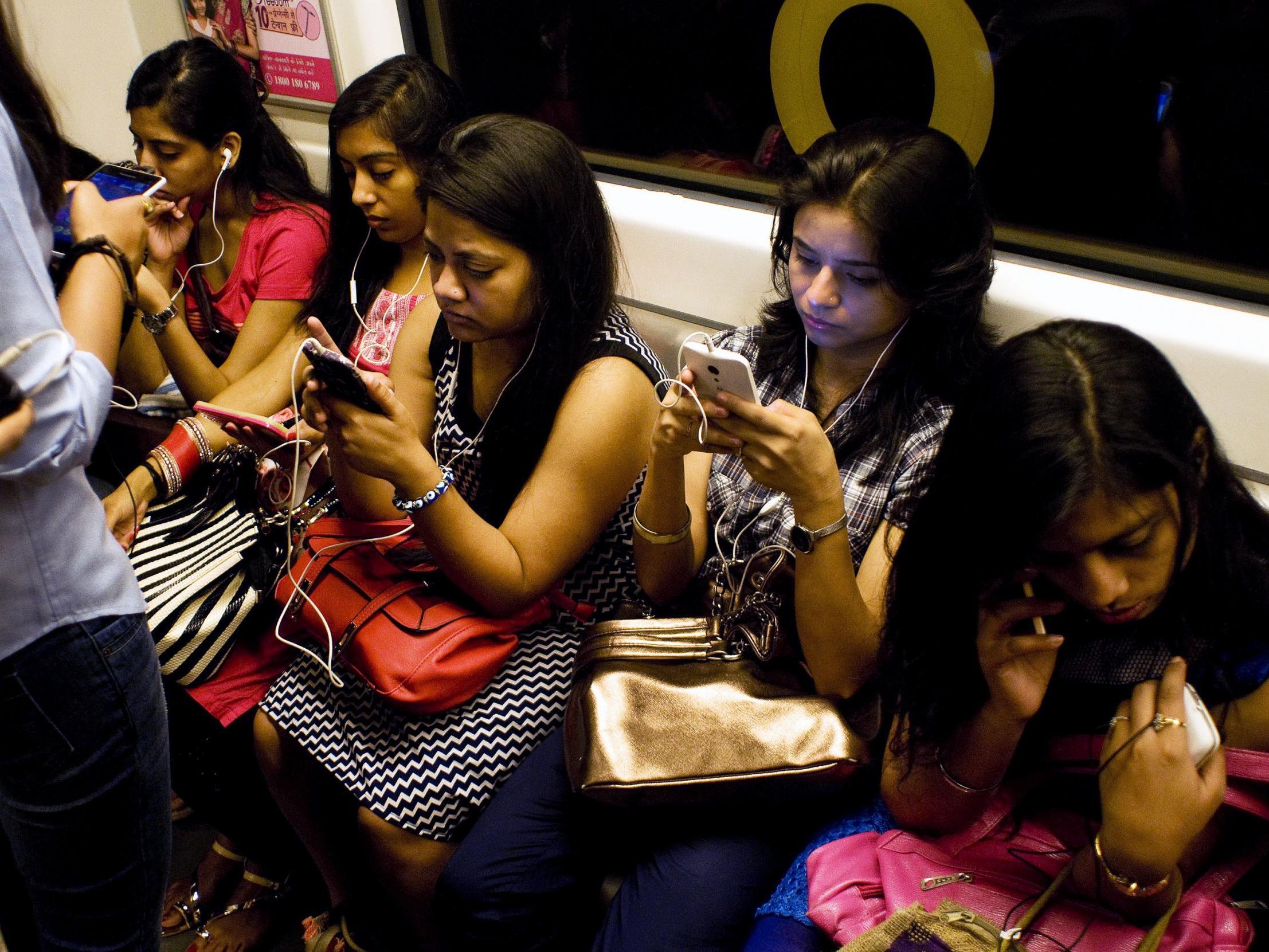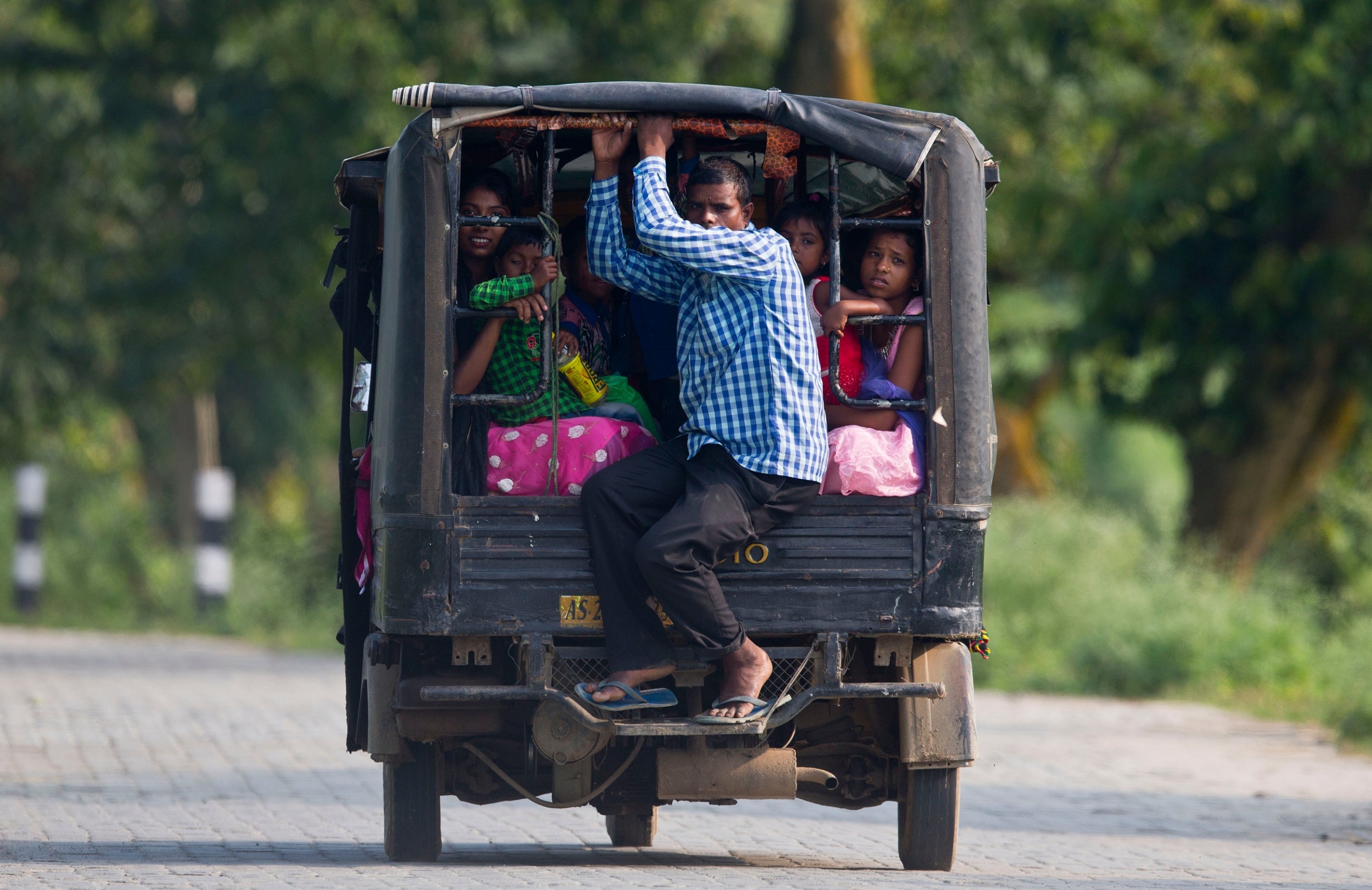Indian women offered free public transport in bid to tackle sexual assault
Metro and bus system seen as safer for women than private cabs or rickshaws, especially after dark

Your support helps us to tell the story
From reproductive rights to climate change to Big Tech, The Independent is on the ground when the story is developing. Whether it's investigating the financials of Elon Musk's pro-Trump PAC or producing our latest documentary, 'The A Word', which shines a light on the American women fighting for reproductive rights, we know how important it is to parse out the facts from the messaging.
At such a critical moment in US history, we need reporters on the ground. Your donation allows us to keep sending journalists to speak to both sides of the story.
The Independent is trusted by Americans across the entire political spectrum. And unlike many other quality news outlets, we choose not to lock Americans out of our reporting and analysis with paywalls. We believe quality journalism should be available to everyone, paid for by those who can afford it.
Your support makes all the difference.Indian officials have announced plans to make public transport free for women in Delhi, in the hope that it would make getting across the Indian capital safer for its female residents.
The city’s bus and metro network is state-run and used by approximately 6 million people daily.
Using public transport is considered safer for women than private cabs or rickshaws, especially after dark.
Monday's announcement by the Chief Minister of the National Capital Territory, Arvind Kejriwal comes ahead of state elections, where his Aam Aadmi Party (AAP) will face Prime Minister Narendra Modi's Bharatiya Janata Party (BJP), which romped to an emphatic triumph in the parliamentary elections two weeks ago.
"Public transport is considered the safest for women, and keeping that in mind, the government has decided that all buses and the metro will be made free for women," Mr Kejriwal told reporters.
But political rivals and some women’s groups claimed the announcement was a gimmick in an attempt to divert attention from the underlying causes of violence against women.
Ranjana Kumari, director of the Centre for Social Research in Delhi, said throwing cash at transport was the latest in a line of empty pledges, including CCTV in metro stations and night guards on buses.
“In fact investments should be made in infrastructure and quality of services to improve safety, instead of freebies with elections in mind” she said.
Delhi has had a terrible reputation for women’s safety, especially after the gang-rape and murder of a student on a bus in 2012, and while hard data is difficult to find, estimates have put sexual crimes at around 300 per 100,000, in the UK it is just under 80, while the global average is around 40.

Some female commuters speaking to Indian TV channels outside metro stations said the blanket policy was a blunt tool, and asked if more could be done with the money to help poorer women generally.
Whilst most metro users tended to be middle class, Dehli's bus users are typically more working class.
But Mr Kejriwal said any women who felt they could afford transport could still buy their own tickets, leaving more of the subsidy for less well-off Delhi residents.
The AAP came to power in Delhi in 2015 with part of their platform being to improve the lives of women in the capital.
They said the new transport policy would cost around Rs 7bn rupees (£78m) annually.
Subscribe to Independent Premium to bookmark this article
Want to bookmark your favourite articles and stories to read or reference later? Start your Independent Premium subscription today.
Join our commenting forum
Join thought-provoking conversations, follow other Independent readers and see their replies
Comments